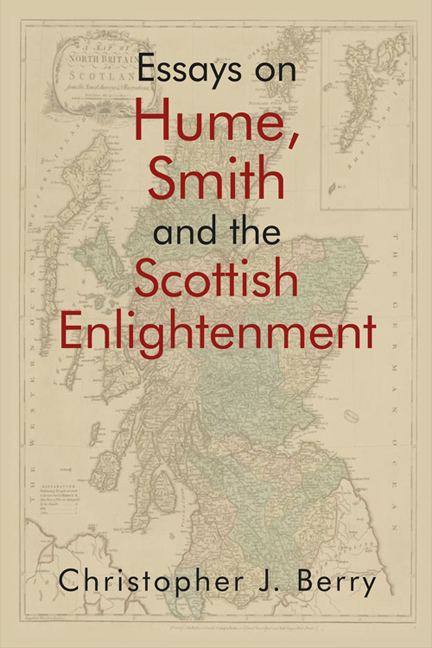4 - ‘Climate’ in the Eighteenth Century: James Dunbar and the Scottish Case
Published online by Cambridge University Press: 06 May 2021
Summary
Many writers in the eighteenth century had occasion at some time to refer to climate. It is essential at the outset to understand the meaning of climate as the term was used in the eighteenth century. It does not have its present meteorological denotation; instead, Samuel Johnson (1792) defines it as ‘A space upon the surface of the earth, measured from the equator to the polar circles in each of which spaces the longest day is half-an-hour longer’. These references occur in a variety of contexts but there is one predominant theme, namely its evocation as an explanatory factor. Thus, for example, it is used by Buffon (1812: III, 446) to account for racial differences, by Bullet (1754: I, 7) and Herder (1891: V, 125) for differences in pronunciation, by Dubos (1755: II, 500; and passim on climate and ‘air,’ esp. Chs. 14–19) for differences in stylistic sensibility, and, most renownedly of all, by Montesquieu (1961: esp. Bk 14, but see infra, hereafter cited as Esprit) to account for differences in laws. The purpose of this chapter is not to catalogue the different usages to which climate was put, but to examine one particular theory in some detail. This theory – that of James Dunbar – is not only one of the most thoughtful (and relatively neglected) pieces on climate but also, by its very nature, as will be illustrated, it helps to enlighten and clarify some of the issues raised in the literature, with particular reference to that of his fellow Scots.
The Scots’ treatment of climate is of interest for two reasons. First, they have been regarded as being among the foremost thinkers in laying the groundwork for the social sciences. Adam Smith's contribution to economics needs no justification; nor, increasingly, does the work of Adam Ferguson (in particular) or John Millar. Lord Kames and others need much advocacy to be regarded as important contributions to the development of sociology. In their writings, these thinkers emphasised the study of society rather than the state or the individual and, in so doing, they broke away from the prevailing tradition of rationalistic individualism.
- Type
- Chapter
- Information
- Essays on Hume, Smith and the Scottish Enlightenment , pp. 60 - 74Publisher: Edinburgh University PressPrint publication year: 2018



